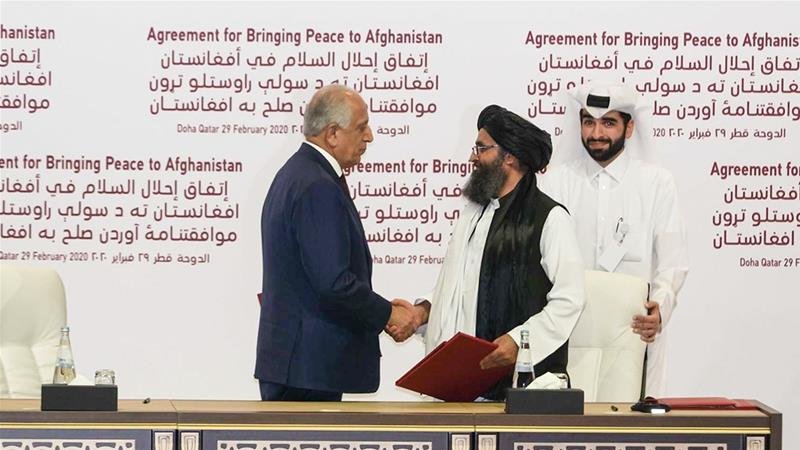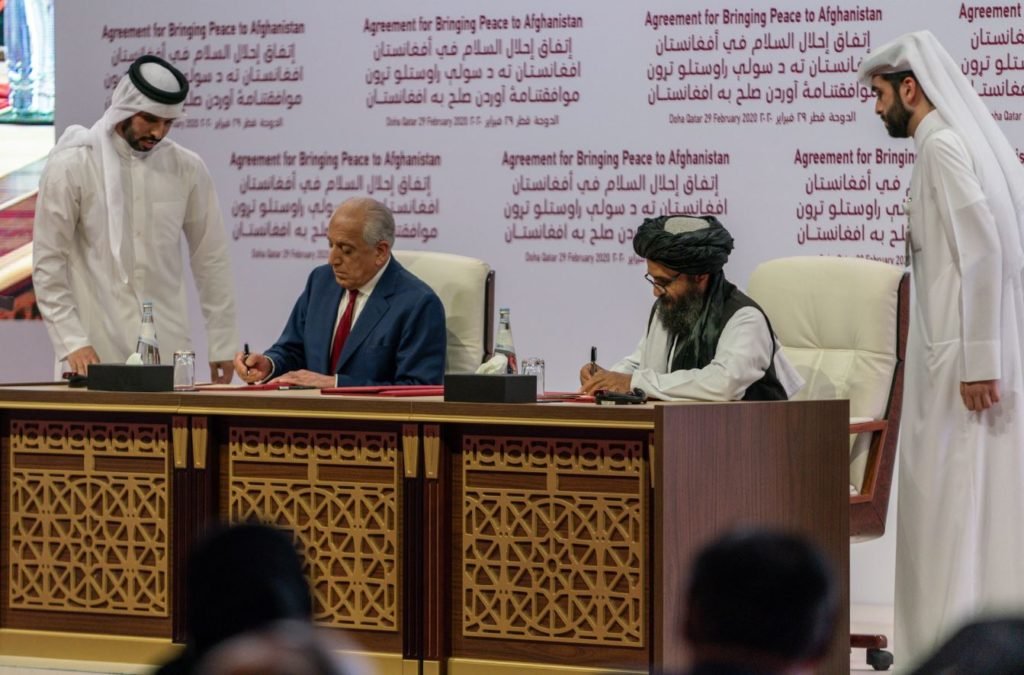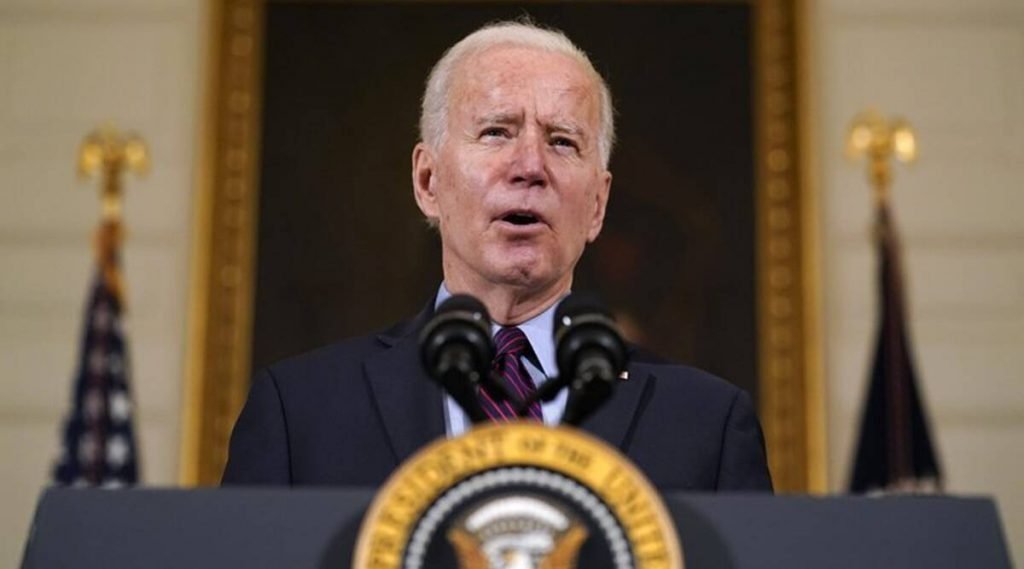First restart of US-Taliban peace negotiations under Biden Administration

The end of February marks the one year of the Doha Agreement, officially known as the Agreement for Bringing Peace to Afghanistan, which was signed on 29th February 2020, between the United States and the Taliban to stabilize the 20- years conflict-ridden country Afghanistan via negotiating the political settlement between Kabul and the Islamic insurgents.
In this regard, the US State Department on Sunday, 28th February 2021 announced the resumption of US-Taliban talks which were previously going through an undetermined path due to the forthcoming Biden’s administration as the new US elect in 2020-21. To give headway to the negotiations, American President Biden has appointed Zalmay Khalilzad as the US Special Representative for Afghanistan Reconciliation under his term. It should be noted that previously under Trump’s administration (2020), Envoy Khalilzad acted as a Chief US negotiator with the Taliban, hence his re-appointment signifies the Biden administration’s faith in the Doha Agreement and Trump’s Afghan Policy.
Gearing to restart the peace negotiations for the first time under President’s Biden Cabinet, the US Special Representative, Khalilzad will be meeting the concerned parties – the Afghan officials and Taliban representatives on his visit to Kabul, Doha and additional regional capitals, as he is expected to visit New Delhi and Islamabad too.

What does the US-Taliban Agreement constitute?
The 2020 US-Taliban Agreement was negotiated under Trump’s administration, which stipulated the withdrawal of American troops which were deployed as a retaliation action to the 9/11 Al-Qaeda Terrorist attack in the US (2001).
Under the signed deal, envoy Khalilzad announced that the US would withdraw 5,400 troops from Afghanistan within 20 weeks, further promising a proportionate reduction in the number of other international forces in Afghanistan. In exchange, the Taliban agreed to reduce violence upon Afghan officials & civilians, further guaranteeing to end its terrorist association by preventing groups such as Al-Qaeda and ISIS-Khorasan (ISIS-K) from operating within Afghan territory.
Thus, the negotiated settlement aimed to establish a ceasefire among warring factions as both sides aspired to accelerate intra-Afghan peace negotiations to settle the dispute of (1996-2001) Afghan Civil War, further stimulating prisoner-swap.
However, the negotiations between the Taliban, Kabul and the US have not made much progress, given that neither side has kept all its commitment. The Taliban has certainly not reduced attacks on Afghan government officials, as the number of assassinations and deadly attacks has increased within a month after the signing of the 2020 agreement. Whereas, The ISI-K has also continued attacks targeting civilians, subsequently expanding its presence in eastern Afghan provinces. On the other hand, the Taliban had accused the US of not taking decisive steps to lift sanctions against the Taliban agreed during the rounds-of- negotiation, further asserting claims that the US-sponsored “excessive” aerial attacks and bombings in Taliban’s Helmand province.
What will be Biden’s positions in upcoming US-Taliban talks?
As all sides remain in a state of chaos and dissatisfaction, the Afghan civilians are burning upon the withdrawal of US troops and the onset of a violent Taliban regime, in this scenario the Biden administration has waved a flag to restart negotiations from a fresh end. This will certainly emerge as a real challenge as the Biden’s Administration must clarify its position regarding the deal as well as the drawdown of troops.

The 2020 negotiated deal signed under Trump’s administration states that US forces will leave Afghanistan by May 2021, if the US honours its commitment to the Agreement. However, last month, the Pentagon stated that the new Biden administration “would not commit to a full drawdown of US troops from Afghanistan by May” as the Taliban have not met their commitments. Further, the White House press secretary, Jen Psaki, clearly stated on 24 February that President Biden would not be comfortable if the Taliban ruled Afghanistan, thus signifying that the Biden administration might opt for a new way out to process a new resolution. This new policy review of the Doha accord has also opened an optimistic door for Afghan President Ashraf Ghani, given that the Afghan government was not involved in the negotiations when the Trump administration agreed to the deals with the Taliban.
However, it is crucial to note that if the Biden administration opts not to withdraw troops within the period mentioned in the agreement, the Taliban might also withdraw from the intra-Afghan peace settlement thus resuming hostilities and attacks against US troops, Afghan officials and Afghan civilians. This will certainly rupture the emerging peace in Afghanistan.
Whereas, if President Biden decides to walk along the footsteps of Trump’s administration, he would have to construct a way to guard the gains of the women and civil societies made over the last 20 years, given that the withdrawal of US troops is already haunting the Afghan civilians if at all Taliban succeeds to rule Afghanistan. Moreover, the Taliban’s triumphant march to Afghanistan also poses threat to the global society over global terrorism, specifically to the USA’s close ally India as the Taliban might lend legitimacy to the insurgent groups stemming from Pakistan in the disputed regions of Kashmir, given the close Pak-Taliban ties as Pakistan fully backs to step up Taliban rule in Kabul.


















